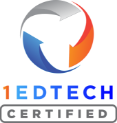- Student centred-learning, ethical data use and learner support identified as priorities for universities in the year ahead
- Report warns against unstructured learning in a post-Covid world
London – 11 August 2021 – New research from PebblePad has identified student-centred learning, well-structured and supported studies and ethical data use to monitor student progress as the most important initiatives to fuel post-Covid learning in the year ahead. The in-depth research, which was gathered over the last year from university leaders around the world, pinpointed a number of priorities for HE leaders as they build post-Covid teaching and learning strategies.
While the study calls out the successes of universities who have moved quickly to deal with Covid challenges, it also highlights issues which need to be urgently addressed. For example, the quick pivot to online teaching and learning has provided learners with plenty of material to consume, but not a lot of structure, scaffolding and support.
Looking at successes and issues over the last year, together with both pedagogical priorities and leader objectives, PebblePad has been able to develop a ‘rebuild and recovery’ blueprint.
Priority 1 – Supporting end-to-end learning journeys
The ability to guide learners through the learning journey is important for the prospect of success, and this ambition was one of the most highly rated by our survey respondents. While fundamentally something that needs to be built into the learning and assessment design, the right technology can be effectively employed to assist with this process.
Priority 2 – Student-centred learning
Student-centredness is typically active, collaborative and experiential, with a focus on what learners can do rather than just what they know. A student-centred approach aims to engage learners as partners in the curriculum and in their assessment, allowing them to take ownership and control of their own learning.
Priority 3 – Evidencing skills and capability
Even within a formalised structure, such as a university degree, learning opportunities happen in a wide variety of contexts beyond traditional lectures or tutorials. Being able to capture evidence of learning and skill development that occurs during internships, placements, experiences abroad and service-learning contexts was highly prioritised by our survey respondents.
Priority 4 – Authentic assessment
In an era of rapid change and a volatile employment environment, the need to develop future-ready graduates with transferrable skills has never been more important. One response to this challenge is to use authentic assessment approaches, which are situated in a real-world context and aligned with what learners will need to do in the future and the expectations of industry and employers. This ambition was rated second-most highly in the survey responses, however this shifting focus away from content-driven tasks to synthesis and application was identified as providing some challenges to implement and support.
Priority 5 – Ethical data use
One of the perceived benefits of using educational technology is the ability to capture data that provides a picture of student engagement, progress and outcomes. However, the capture and use of learner data raises several concerns over privacy and ethical use of their information. While the priority for our survey respondents lay in areas directly related to teaching and learning approaches, analytics and the ethics of data usage was nevertheless recognised as an important consideration, and there was an acknowledgment that achieving this ambition is not easy or straightforward.
Shane Sutherland, CEO at PebblePad said: “Responding to the worldwide crisis of COVID challenged those of us in the higher education sector personally, professionally and institutionally. Despite the difficulties, many of my colleagues across the sector really shone during this time of adversity. Whilst the slow pace of change across higher education is often lamented, the last year has taught us that sufficient skills, support and structures were in place to mount a credible defence against the destruction that COVID might otherwise have wrought. This report looks at what’s next – how universities can take these learnings and use them to build a brighter future for the sector.”
About PebblePad
Founded in 2004, PebblePad is an award-winning Learning Journey Platform, designed to help learners, wherever they are learning (at study, work or play), develop, shape, and share their unique skills and attributes in an ever more competitive world. It’s why PebblePad is fast becoming an integral part of Higher Education institutions’ digital ecosystems across the globe.









